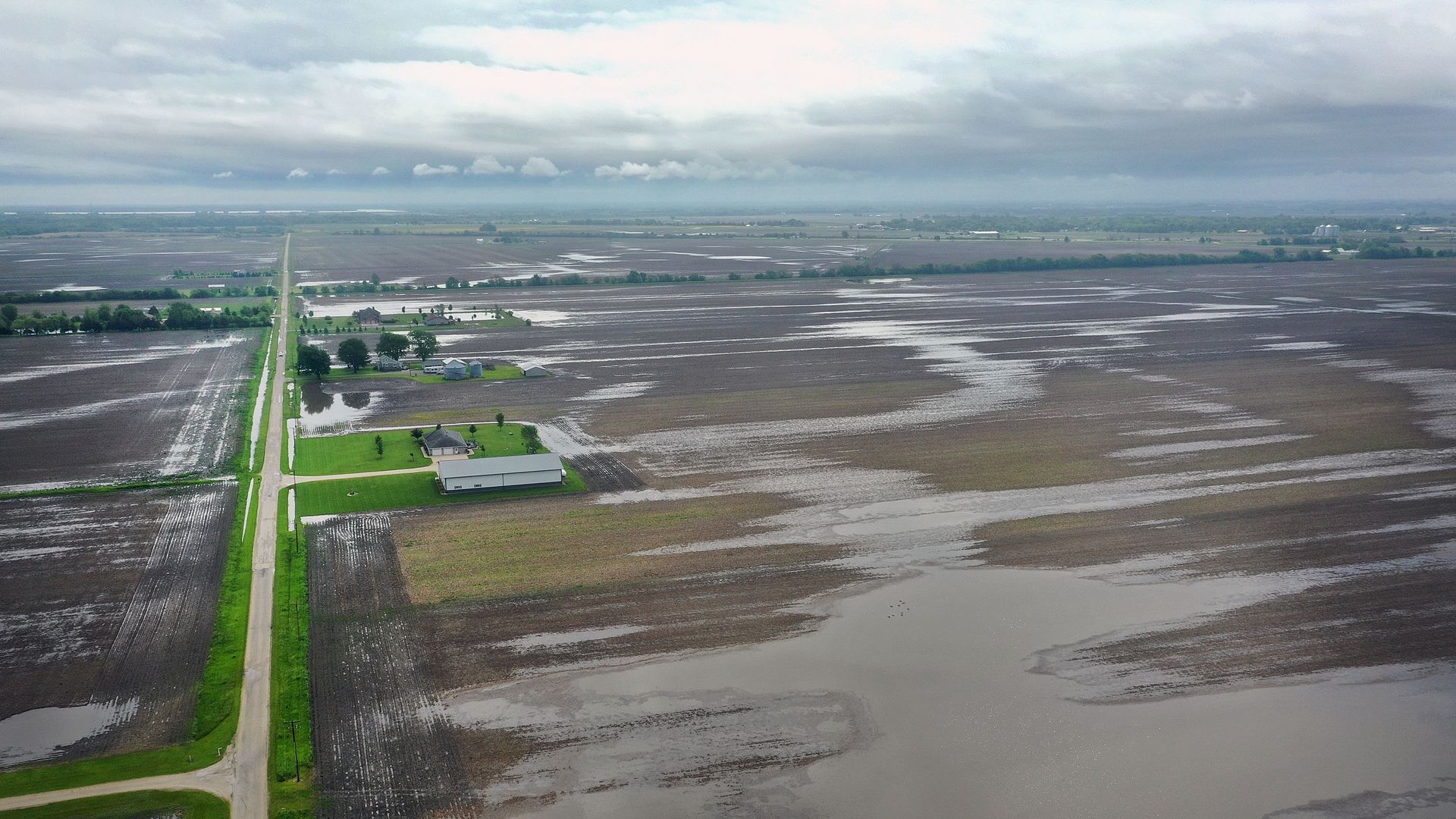Jun 23, 2019 - Science
Rain makes corn — until it doesn't
Add Axios as your preferred source to
see more of our stories on Google.

Water pools in rain-soaked farm fields on May 29 near Gardner, Illinois. Photo: Scott Olson/Getty Images
Add Axios as your preferred source to
see more of our stories on Google.

Water pools in rain-soaked farm fields on May 29 near Gardner, Illinois. Photo: Scott Olson/Getty Images